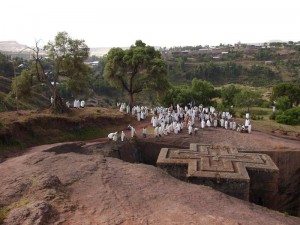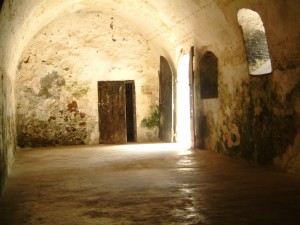Off to Part 3, which speaks a bit on the learning and instructional frameworks of History as practiced in higher education. It is not my stated intention to jump too far into instructional practice for History (instructional as in taught course/formal education), but after repeated attempts to remove this bit, it seems foolish as they are intertwined (teaching and research) in this pseudo-apprenticeship model that History seems to be projecting. As such, the assumptions and questions I have here are much the same as they were in Parts 1 and 2 of this series of posts:
- Are these learning and instructional practices the same for developing as developed nations?
- Can these knowledge construction and collaborative practices be effectively presented or investigated (perhaps even augmented) in mobile environments? My guess is yes as they are mostly argument-based explorations of potential knowledge statements and, as such, textually based (therefore well-suited to SMS based technologies-if SMS does indeed prove to be a requirement).
- Has the practice of History in higher education in developing nations engaged this pedagogical shift towards constructivism, this ‘joint enterprise of knowledge construction’? I am not sure many developing nations have made this transition. The mobile learning framework I had in mind for this project was a collaboration/community based one, but if constructivism, or any sort of collaboration, is not openly embraced then much of this work will lack an adoption by the community it intends to serve.
- Not a question here, but I actually think History’s focus on relativism, of fluid truths and perceptions, is served well by mobile learning precisely due to mobile learning’s mediation of simultaneity, of the learner being engaged on multiple cognitive fronts simultaneously. These multiple cognitive fronts can be contradictory (a learner can embrace contradiction and complexity), conscious or not (processing learning as a subconscious activity), and will most likely be overlapping. Learners can perceive complexity in simultaneous congitive spaces; our learning frameworks often cannot. A chat I am having with @peeii is expanding/refining my focus on the role of simultaneity (context, really) in mobile learning, something that I think can be incorporated into historical practice in higher education.
- Observation here perhaps common to most disciplines is the seemingly contradictory nature of historical discussion/debate (collaborative knowledge construction) and then a sharp shift to isolation in knowledge dissemination (PhD dissertation/monograph production). Intentional or a by-product of a former time? Does collaboration in a mobile environment spell a greater collaboration (or at least less isolation) in mobile dissemination of that knowledge (publishing)? A rise in co-authorship?
So, perhaps you can see where I am leading with what will be Part 4, the linking of the practice of History to frameworks for mobile learning. Part 4, if you were actually waiting for it, is where the mobile frameworks will come into play.
Part 3: Learning and Instructional Frameworks in History in Higher Education
Critical to this exploration in History is the notion of self-perception, identity and collaborative practices. In regards to self-perception, the ETL Project offers valuable insight. Enwistle, referring to research done by Becher and Trowler, states that “History is described as being soft, pure, convergent and rural” (2005, 4). History is, to quote Becher, an “academic tribe” which has “different knowledge territories”, in this case territories that are soft, convergent, and rural. Further, that in these knowledge territories fundamentally different questions are asked, and “arguments are generated, developed, expressed and reported” in different ways (2005, 23). Much of how these arguments are expressed and reported has been discussed in terms of research and instructional outputs (ie, monographs and essays). Beyond dictating the forms of output, evidence of these academic tribal affiliations on disciplinary identity was evident throughout the research. These academic tribes offered a cultural context for expected work and behavior as well as social support.
Enwistle stresses the “rural” aspect of History in that “there is much more room for personal interpretation of evidence”, a situation where “personal viewpoints are encouraged, as long as they are well-supported” (2005, 8). This personal interpretation is reinforced by the final stages of academic apprenticeship, the doctoral work in keeping with the requirements for a PhD, often a solitary pursuit of independent research conducted in coordination with a mentor (an established historian).
Much instructional pedagogy in History in higher education is constructivist in nature. Constructivist frameworks of instruction stress the role of context and social negotiation of knowledge in instruction (Savery, Duffy, 1996). History establishes context through its pursuit of knowledge claims, their validation, and the manner of practices associated with this process. The social negotiation of knowledge is established through the apprenticeship model in higher education, namely the pairing of a student (apprenticing historian) with a mentor (practicing historian). Mobile learning’s affordance for this context and social negotiation will be analyzed to determine its applicability to the practice of History in higher education.
Building on this constructivist pedagogy, the work of Meyer and Land in regards to threshold concepts offers considerable insight into the practice of History in higher education (2005). Meyer and Land’s analysis of the role of ‘thresholds’ in developing “pedagogically fertile” and role-defining shifts in learner’s understanding of their place as active members of the discipline has great application for History as the vehicle for disciplinary understanding (Meyer, Land, 374). All of the participants in this research are active members of the History discipline, at varying stages of development (student vs. faculty, university vs. research organization) and at varying degrees of affiliation with their institution and their profession.
Constructivism in History in higher education is also realized in the evolving nature of student participation in the historical process. According to Enwistle, “students were being encouraged to express their own views in discussion and feel part of a joint enterprise that allowed them to believe that their views and interpretations had value as they began to think ‘like a historian’.” (2005, 8) This self-perception of thinking “like a historian” has value pedagogically as an instrument that motivates participation and collaboration (Enwistle, 2005, 8). The experience of ‘legitimate peripheral participation’ in the work of the professional historian” is constructivist in nature, emphasizing as it does collaborative knowledge construction; it further is identity forming by establishing etiquette for “communicating ideas in academically acceptable forms of expression and argument” (2005, 8). Students are taught to act, argue, participate, and express themselves as historians. The pedagogical importance placed on disciplinary participatory identity in History emphasizes the importance of establishing the level of receptiveness to mobile learning on a disciplinary level. With so much emphasis placed on identity as a historian, viewing their receptiveness to mobile learning as partly influenced by disciplinary norms is prudent.
A facet of learning in History in higher education is the general lack of abstraction that might pose conceptual hurdles for students; however, this lack of abstraction is counteracted by the contested nature of historical knowledge, a general level of uncertainty over what is historically valid (Enwistle, 2005, 8). Since students have often not experienced this type of uncertainty academically, the ability of History in higher education to elicit the viewpoint of History as a “wider social and temporal context” is valued. Threshold events are incorporated into the very pedagogy of History itself by encouraging students to view historical knowledge as temporal, socially constructed, and often disputed. Enwistle, in establishing the necessity of accepting relativism in historical knowledge construction, refers again to the process of historical knowing which involves a layering “in which students were helped to add new layers of their current understanding of a topic over time” towards a “greater maturity of judgment” (2005, 8).
Also present pedagogically is an attempt to avoid the historical fallacy of presentism. Presentism is the fallacy of interpreting past events and context through present day structures and filters (Hackett Fisher, 1970, 135). By encouraging students to avoid presentism, to indeed view all historical knowledge as temporal, social, and not entirely causal, the conditions for obtaining threshold knowledge are contextually introduced. This mirrors the case study presented by Macdonald and Black (2010) in their discussion of distance learning for an undergraduate course in medieval European History at Open University at the UK. According to Macdonald and Black, great emphasis was placed on instructing students on “resisting a ‘present-minded’ perspective”, or presentism, in historical practice (2010, 77). This threshold event of identifying and avoiding presentism can be seen as a barometer of students’ progression in the practice of and identification with History (Enwistle, 2005, 8).
Further echoing Anderson and Day’s work (2005) on suitable sources for historical investigation is the notion that studying “History at university has less to do with assimilating information than with engaging with historical problems and scholarly perspectives based on a range of evidence” (Macdonald, Black, 2010, 78). Engaging with these historical problems based on a range of evidence is effectively one of the “big moments” of an apprenticing historian’s relation to the discipline (2010, 71). If and when the apprenticing historian embraces the contested nature of historical knowledge, the avoidance of presentism and the historical practice of engaging with historical problems through a range of evidence, or, to put it differently, passes through the threshold, there is evidence of transformative change consistent with threshold concepts (Meyer, Land, 2005). The apprenticing historian learns the practices and pitfalls of historical knowledge construction and further identifies with the discipline itself as a practicing historian.
Fittingly, Ray Land, Jan H.F. Meyer, and Caroline Baillie provide a concise summation of History as a series of learning thresholds:
“The range of learning thresholds identified with the discipline indicates how the conceptual and ontological are inextricably linked, and includes, to take a sample, developing and evaluating historical arguments, recreating historical context, maintaining emotional distance, overcoming affective roadblocks, willingness to wait for an answer, dealing with ambiguity, seeing artefacts from the past as representing choices that change over time, identifying with people in another time/place, understanding historical change, reading critically, writing historically, using appropriate language, and understanding notions of time” (Land et al, 2010, xxx).
The perceived ability of mobile learning to supplement or replicate these historical learning thresholds, this research believes, is critical to the success of mobile learning to the discipline.



[…] Part 3: Learning and Instructional Frameworks of History […]
[…] Part 3: Learning and Instructional Frameworks of History […]